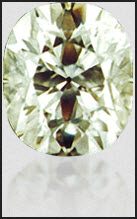At 243.35 carat (ct), the Jubilee is one of the finest examples of a diamond of exceptional size and quality (not to be confused with the Golden Jubilee, a 545.67 ct brown diamond).
The 650.80 ct rough diamond was discovered in 1895 at the Jagersfontein Mine in South Africa. It was originally called the Reitz Diamond, after Francis William Reitz, who was president of the Orange Free State where the diamond was mined. It was cut and polished to its current size in 1896 and the owners planned to present the diamond to Queen Victoria, however, that did not happen. Nevertheless, it was renamed in 1897 to commemorate the 60th anniversary of Queen Victoria’s coronation, her Diamond Jubilee.
The Jubilee changed hands in 1900, when Indian businessman Sir Dorabji Tata purchased the cushion-shaped diamond. A few years after Tata’s death in 1932, the diamond was sold by Cartier and the proceeds went to the Sir Dorabji Tata Trust, a philanthropic organization dedicated to advancing learning and research, relief work and other charitable purposes. The diamond was purchased by French industrialist M. Paul-Louis Weiller and reset before being sold to Robert Mouawad at a later date.
Learn about The Elizabeth Taylor Diamond, Cullinan II, Koh-i-noor and The Orlov, all part of our famous diamonds series.
Originally published on April 28, 2014. Last updated on July 3, 2019.
Custom Field: Array
